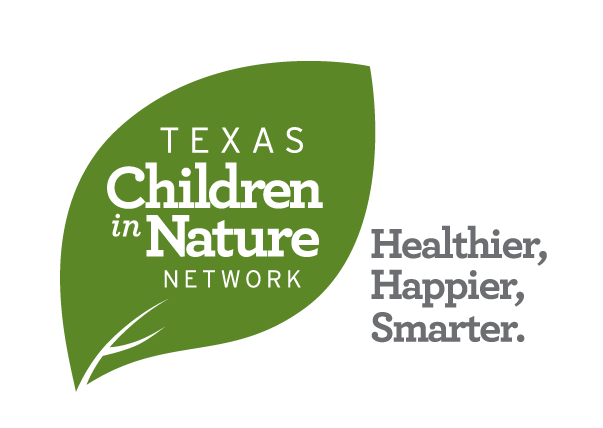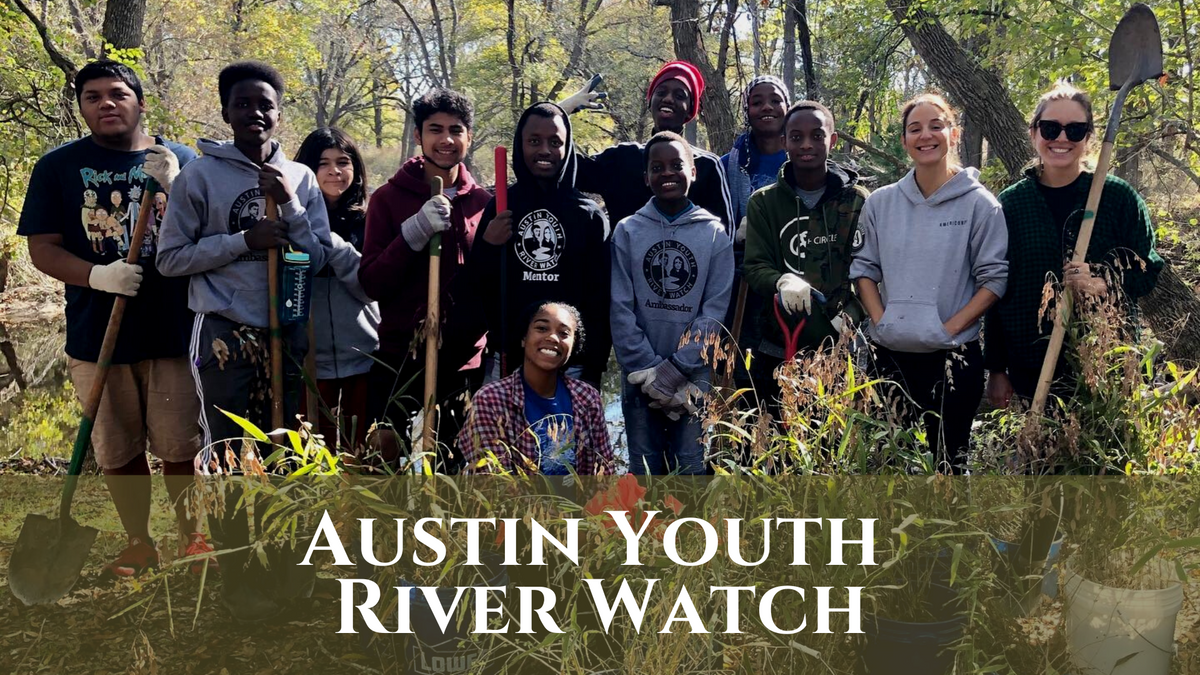Austin Youth River Watch
On December 11th Chanel Davis and Beth Bennett from Austin Youth River Watch sat down with to talk about their program and how they are engaging youth in the Austin area,
Introduce yourselves and tell us about what you do:
My name is Beth Bennett, I am the Senior Program Coordinator with River Watch. I have been with the organization for over three years. In school I studied environmental policy in college at St Edwards. I focused on environmental education because I noticed that in all of my policy classes the basis of change was education. I work directly with students to provide hands on and virtual programming, and helped develop an launch the environmental leadership program our college internship program.
My name is Chanel Davis, I am a Program Coordinator with AYRW. I have been with the organization for one and half years. My background is in animal behavior with a Master's in education. Like Beth I picked up on the start of all the changes we want to see is with education. I love being outdoors and want to share that with people as part of my career, and spend a majority of my time working with students, now in a virtual format.
What does your organization do?
Austin Youth River Watch combines peer mentoring with intensive environmental education, it bolsters students through both service based and experiential learning programs and environmental science. This includes everything from water quality testing to restoration projects. We connect students with long sanding and various young professionals through job shadowing, phone interviews and sitting on panel discussions with environmental professionals. This allows the students to ask questions, have outdoor adventures and they get a lot of first hand experiences. Lots of the students are gaining experence with different outdoor experience for the first time. We hear things like "I used to hate hiking, now I love it" from our students a lot. They are forming connections with the natural environment around them.
What makes Austin Youth River Watch Unique?
We work with a majority of student populations that are deemed "at risk" by the Texas Education Agency. The students receive a stipend at the end of the month for the work they do with us. Many students who are financially disenfranchised often have to work after school to bring money into the household, the stipend makes it more possible for the students to participate. We provide transportation for all our activities as well as meals and snacks when the students are will us.
We also promote peer mentorship amongst the students. The bond of the students with each other and with the program coordinators is another thing that makes us unique. The unstructured time during out programs is often when some of the most important conversations happen.
How does Austin Youth River Watch work in the access and equity in nature space in Austin?
Equity has always been a critical and central part of what Austin Youth River Watch is from the beginning of the program. We are focused on removing barriers to equitable access to the outdoors - through paying the stipend for what the students are providing to the community, full transportation and meals, all of our outdoor adventure opportunities are free for the students and we provide the gear for these as well.
In relation to COVID-19 we have had to shift the things we do and saw a strong need for meal support in with our students. So we have been providing meal deliveries every week through a partnership with Keep Austin Fed and increased the stipends during the pandemic to support the students and their families. We have loaned out computers and hot spots to help our students better access not only school but also our programs. We deliver all the materials for our programs so they do not need to find those supplies themselves.
We just formed our DEIJ committee with staff and board members and are focused on evaluating our current programming, practices and policies to ensure we are being as equitable as possible in all the ways we work with our students.
How did you get involved in the Texas Children in Nature Network?
The first time was when Amelia submitted a research proposal for the conference about assessing learning outcomes for our program - asking questions about how the students enjoyed the outdoors and hoped to share our findings. We are now Nature Rocks Texas partners and we have been attending y'all's webinars and virtual meet-ups.
What makes your passionate about helping children and families spend time in nature?
Chanel - When I was growing up my family was one of the few black families doing something in nature. I want to be part of providing positive opportunities for black and brown students in nature because that was me. I love being part of those memories. I hope they are encouraged to do the same in whatever capacity makes sense for them. Austin Youth River Watch has a good balance between education and environmental science and the students get to experience being in the outdoors with community.
Beth - For myself I think of myself as a child. Today's kids have such a different experience. When I think about my experience I was outside all day long - making up games, being creative. We now have a lack of greenspace in urban areas. I love connecting children and adults with nature. Nature provides countless opportunities for discovery, creativity and problem solving. Spending time in nature allows reconnecting. We talk to our students about direct and indirect services our environment gives us - we get so much from the outdoors.
How has the Texas Children in Nature Network helped you and your organization?
Networking has been great especially through the meet-ups and monthly access calls. The webinars and trainings help us improve our own programming and resources. It provides us a platform to share our research and what we do.
Where would you like to see the Texas Children in Nature Network in five years?
I think about how so much of Texas is privately owned, we would love to see more partnerships with private land owners to get children out in nature. Hoping for more access across the state, more experiences and resources with in school and out of school time and outdoor education for high school students. The research for elementary still applies to high school students - I would love to see more exploring of the concepts so we can better support teachers in what they are doing. I love all the networking and hope to see more partners and connections.
Thank you Chanel and Beth for your time today.
To learn more about Austin Youth River Watch check out the following link:

